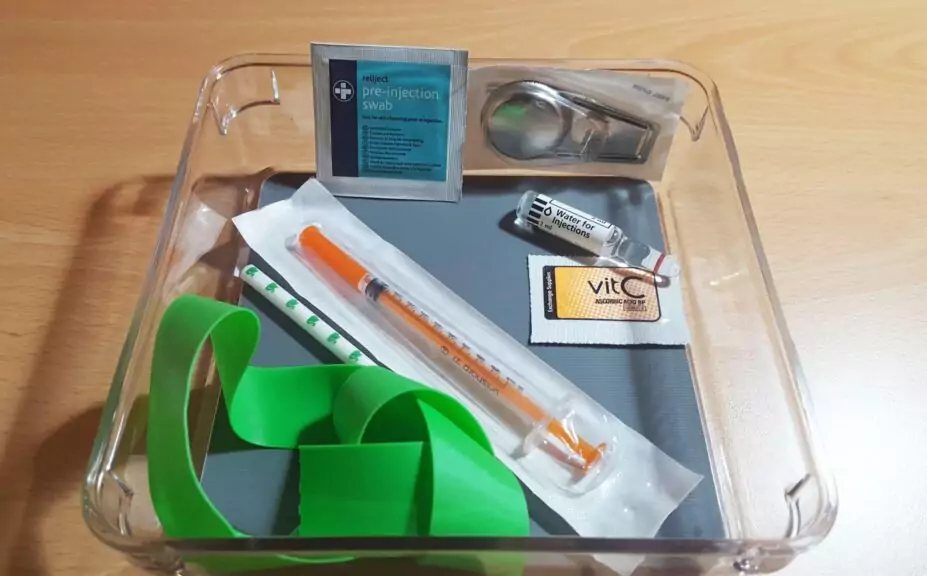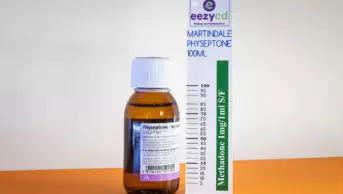
PA Images / Alamy Stock Photo
Plans to open the first safe consumption room for drug users in the UK have been approved by authorities in Glasgow.
NHS and council officials agreed to the implementation of a pilot facility at a meeting of the Glasgow City Integration Joint Board (IJB) on 27 September 2023.
The safer drug consumption facility (SDCF) will allow people to consume and inject drugs in a sterile environment under medical supervision to reduce the risk of overdose and transmission of blood-borne diseases.
People using the facility, based at the Hunter Street Health and Social Care Centre in Glasgow, will be able to access other services including GP appointments, treatment care services for blood-borne virus, sexual health teams, housing officers, welfare officers and peer support workers.
Speaking at the Glasgow City IJB meeting that approved the facility, Saket Priyadarshi, associate medical director of addiction services at NHS Greater Glasgow and Clyde, said people would be able to “bring their own drugs into a service and use them in clean hygienic environment with the support of trained staff who can respond to their needs as they arise when they’re using drugs”.
In addition to reducing drug-related harm for users, Priyadarshi said the facilities would “provide opportunities for treatment care and recovery”.
He said: “The evidence base shows that there are benefits for communities, residents and businesses in the vicinity of such facilities because there’s a reduction in visible public injecting and a reduction in drug related litter as well.
“And for wider society, there are wider benefits in terms of cost benefit of investment in these services leading to reductions in the use of acute and criminal justice systems.”
The opening of a SDCF in Glasgow was first recommended in an NHS Greater Glasgow and Clyde report ‘Taking away the chaos: the health needs of people who inject drugs in public spaces in Glasgow city centre‘, published in 2016, following an outbreak of HIV in people who injected drugs in the city.
Plans to open a safe consumption facility room had previously been blocked by the UK government, with a previous attempt by the House of Commons Scottish Affairs Committee to allow for a pilot in Glasgow rejected by the UK government in 2020.
A House of Commons Home Affairs Committee report on illegal drug use in the UK, published on 31 August 2023, recommended legalising safe consumption facilities.
The current pilot scheme will be able to go ahead without changing the legislative framework after Lord Advocate Dorothy Bain KC, Scotland’s chief legal officer, said it would not be in the public interest to prosecute users for possession of illegal drugs while at the facility.
In a letter to Glasgow City Health and Social Care Partnership (GCHSCP), dated 11 September 2023, Bain said she would “be prepared to publish a statement of prosecution policy to the effect that it would not be in the public interest to prosecute users of that facility in terms of section 5(2) of the Misuse of Drugs Act 1971 for simple possession offences committed within the confines of the facility”.
In a statement published following the consumption room’s approval, Elena Whitham, Scottish Minister for Drugs and Alcohol Policy, said the Scottish government had committed to making up to £2.3m available per annum to GHSCP for the development, set up and running of the project from April 2024/2025.
“We know this is not a silver bullet, but we know from evidence from more than 100 facilities worldwide that SDCFs work,” she said.
“It is time to see this approach piloted in Scotland and while the service would still be limited to some extent, due to the Misuse of Drugs Act reserved to Westminster, we are confident it would save lives.
“It’s vital this pilot has the full confidence of the general public as well as those who use the facility, and the leadership of Glasgow and Police Scotland will help ensure it is introduced as quickly as possible,” Whitman added.
Commenting on the decision, Catriona Matheson, professor in substance use at the University of Stirling and former chair of the Scottish government’s Drug Deaths Taskforce, said the pilot was “great news and a long time coming”.
“The evidence in favour of SDCFs is strong in terms of protecting against blood-borne virus and overdose. No deaths have occurred in these facilities,” Matheson said.
She added that it was “a good way to bring people into care and support services” and that although SDCFs are not ideal for all locations, Glasgow city is “an area of clear need due to street injecting drug use”.
Laura Wilson, director for Scotland at the Royal Pharmaceutical Society (RPS), said: “RPS Scotland supports the introduction of regulated SDCFs as part of a wider strategy to reduce harm and prevent drug deaths.
“Pharmacists, and pharmacy teams, already play a big role in supporting and providing treatment to people who use drugs, as well as offering harm reduction services and advice. It is vital that there is pharmacy input into any SDCFs which are established.”
The RPS called for SDCFs in its 2021 policy ‘Improving care, reducing harm and preventing death in people who use drugs: pharmacy’s role’.


